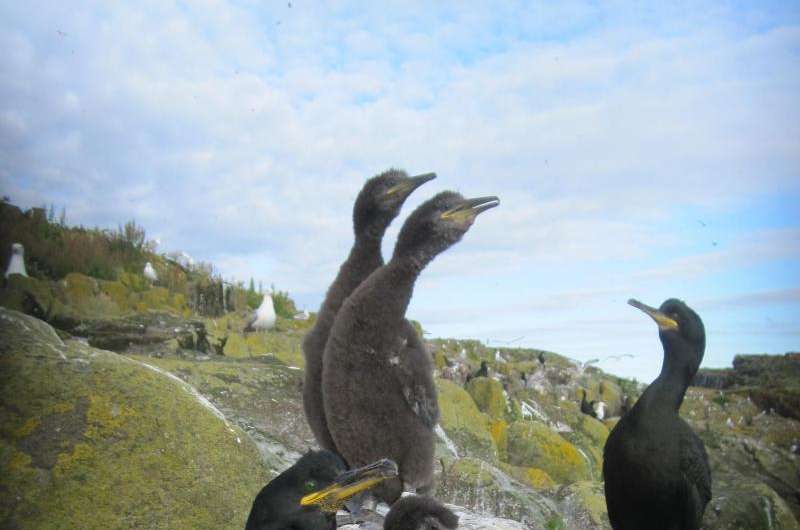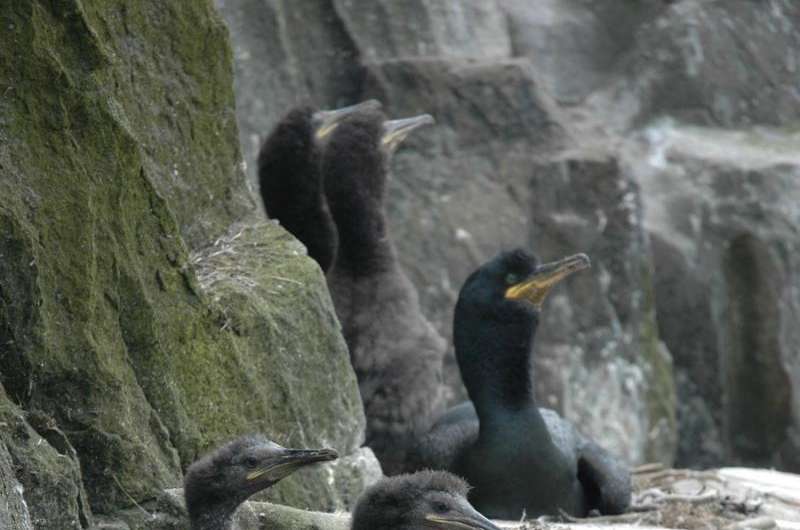Animals' infections can impact most on relatives, study finds

Disease in wild animals can have a greater impact on the health of others than on the infected animals themselves, a study suggests.
Research in families of wild seabirds reveals for the first time how parasite infection in some can have a serious effect on how well their relatives do.
It is not clear why infection in some birds can affect others, but scientists suggest it may affect adults' ability to nurture their young, or that infected chicks may need more care.
The findings could have important implications for the conservation of wild animals, including seabirds, which are under threat.
Scientists from The University Of Edinburgh and the Centre For Ecology And Hydrology studied the impact of disease on families of cormorant-like birds, known as shags, on the Isle of May National Nature Reserve off Scotland's east coast during the breeding season.
They found that worm infection in parent birds or their nestlings impacted most on others in their family group.
In experiments, researchers treated either parent or chick seabirds with anti-worming injections and found that this could have a positive impact for others in the nest.
They found that when parents were treated, chicks born early in the season had a better chance of survival. If chicks born early in the season were given anti-worming treatment, their parents were found to gain weight.

Parents of treated also went on to breed earlier in the subsequent season, giving their offspring in the following year a better chance of survival.
The effects of reducing worm infection were, however, not always beneficial to relatives. Chicks born later in the season to parents that had been wormed had a slightly worse chance of survival. Similarly, parents of treated chicks born late in the season went on to lose weight.
Scientists suggest this may be because late in the season birds are at greater risk of a secondary infection, and food is in short supply.
The study, published in Proceedings of the Royal Society B, was supported by the Natural Environment Research Council and the Royal Society.
Hanna Granroth-Wilding, who led the study, said: "Our knowledge of disease in wild animals has tended to focus on the individual, but our study shows that we need to pay more attention to the broader consequences of disease to fully appreciate the role that it plays in wild populations, especially those whose numbers may be under threat."
More information: Indirect effects of parasitism: costs of infection to other individuals can be greater than direct costs borne by the host, rspb.royalsocietypublishing.or … .1098/rspb.2015.0602
Journal information: Proceedings of the Royal Society B
Provided by University of Edinburgh




















